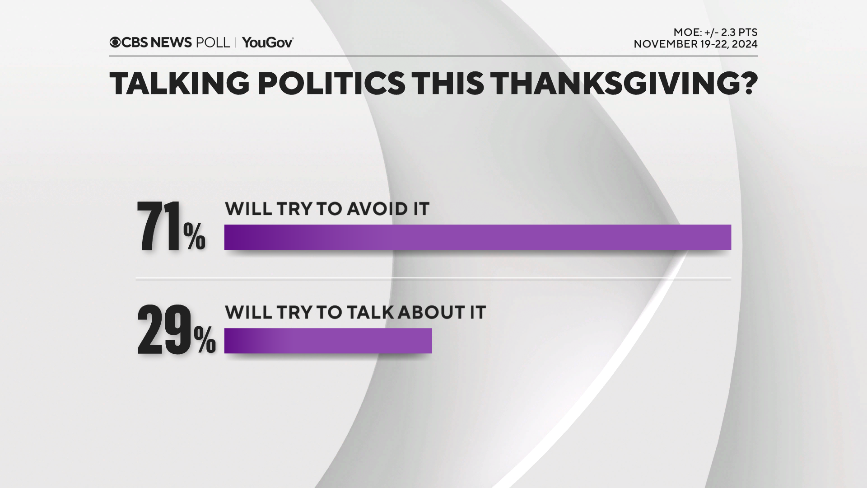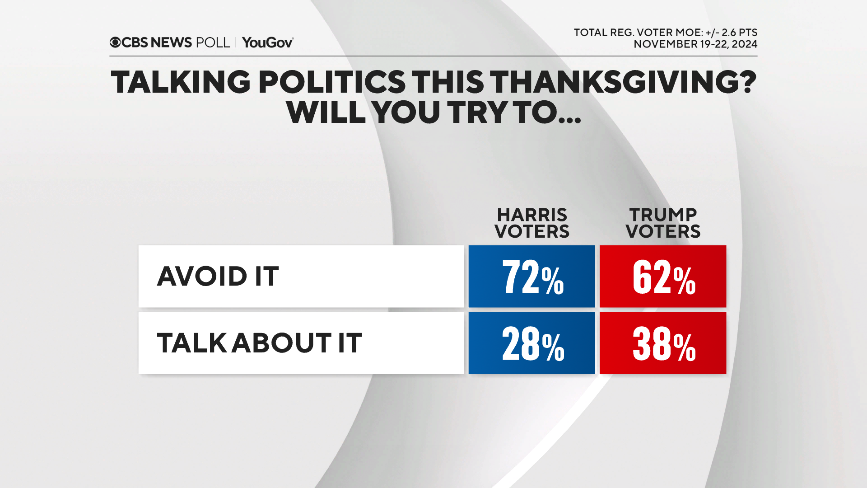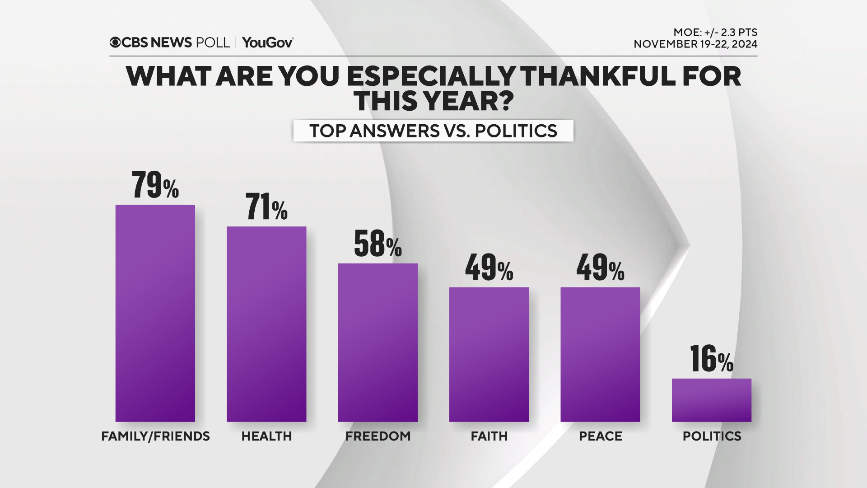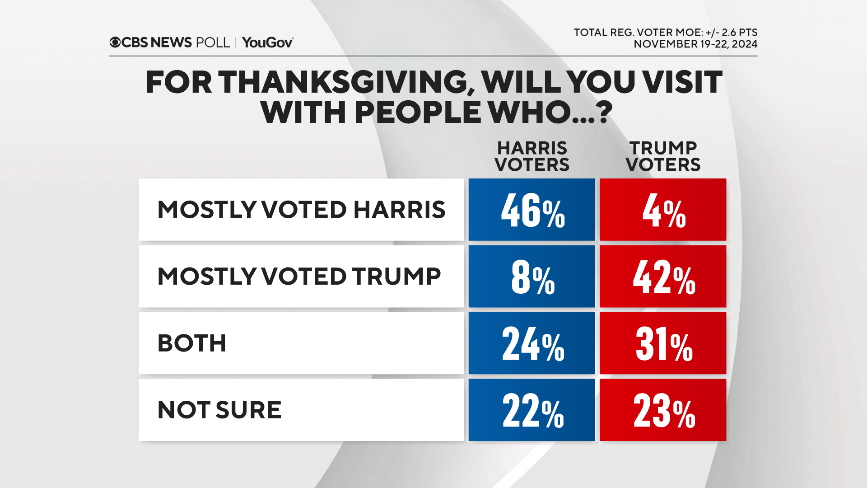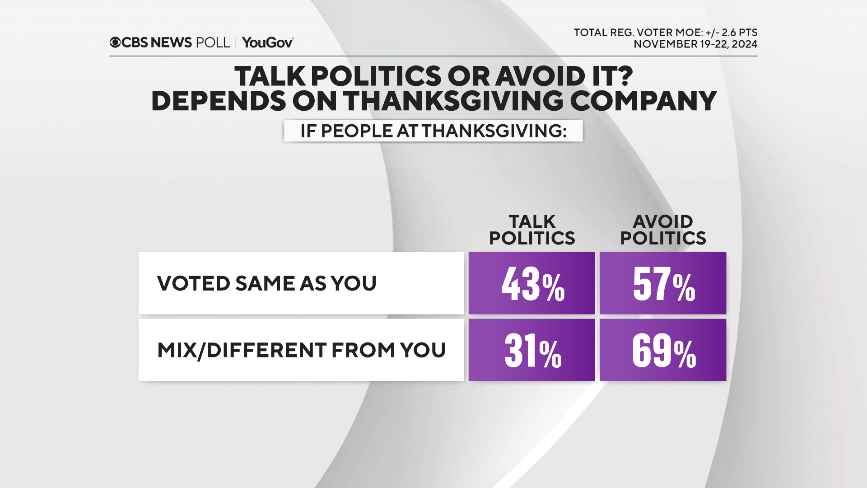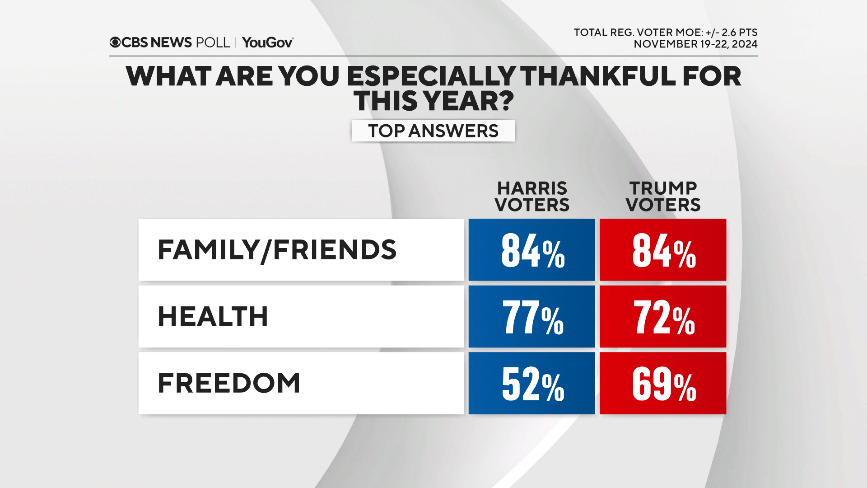Americans say they’re most grateful for friends and family this year.
That may be one reason a big majority plans to avoid political discussions at the Thanksgiving table.
In the wake of Donald Trump’s victory, Trump voters and Republicans are relatively a bit more open to political chat than Kamala Harris voters and Democrats are, but most on either side aren’t particularly looking forward to politics with their poultry.
When asked to choose from a list, it’s family and friends that Americans say they’re especially thankful for this year. It is the top choice across a wide swath of Americans, including all regions, age and racial groups, and across the political spectrum.
Following family and friends, Americans say they are especially thankful for their health and freedom.
Matters of politics and government rank at the bottom of the list.
Whether people plan to engage in political conversation at Thanksgiving may depend on the company.
Many people do report that they’ll be gathering with like-minded voters this Thanksgiving: Harris voters say they’ll mostly be with fellow Harris supporters and Trump voters say they’ll mostly be with fellow Trump supporters.
When that happens, they’ll be relatively more open to political discussion than those who’ll be spending the holiday with a mix of voters, or with those who mostly voted for the other candidate.
All that said, few are going out of their way to avoid political differences altogether. Just 1 in 10 say they have changed their plans to avoid gathering with people who voted for a different presidential candidate than they did.
Despite the political differences between Trump and Harris voters, at least one thing they share is their gratitude for their family and friends.
Fred Backus contributed to this report.
This CBS News/YouGov survey was conducted with a nationally representative sample of 2,232 U.S. adults interviewed between November 19-22, 2024. The sample was weighted to be representative of adults nationwide according to gender, age, race, and education, based on the U.S. Census American Community Survey and Current Population Survey, as well as 2024 presidential vote. The margin of error is ±2.3 points.
